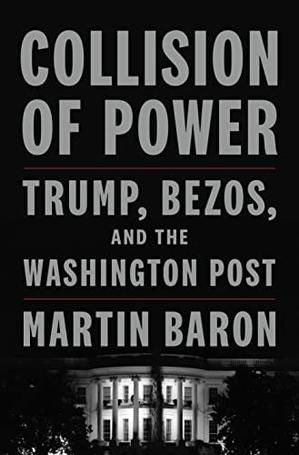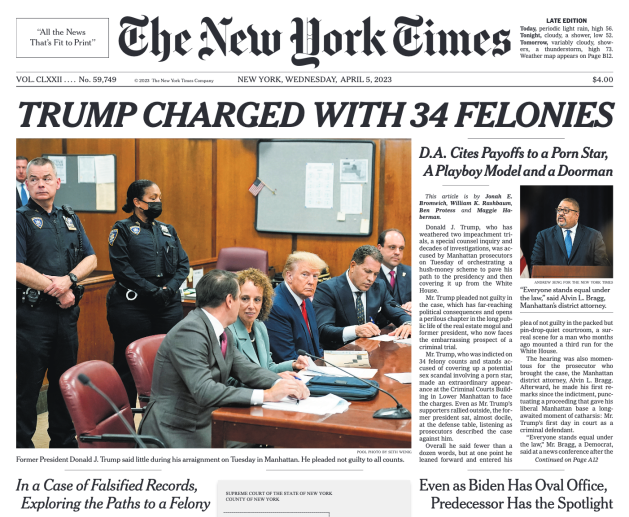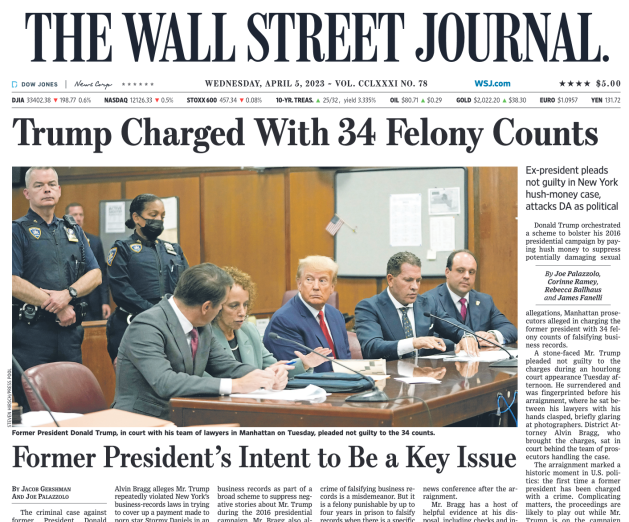On Jan. 27, Holman Jenkins Jr., a conservative columnist for The Wall Street Journal’s conservative editorial page, asserted that revelations by special counsel John Durham show that Donald Trump probably owed his 2016 election to a Russian influence campaign. Jenkins was referring to a “presumably fake email exchange” between Debbie Wasserman Schultz, then the head of the Democratic Party, and Leonard Benardo of the Open Society Foundation. Jenkins wrote:
The fictitious email referred to a presumably equally fictitious conversation between the Clinton campaign’s Amanda Renteria and Obama Attorney General Loretta Lynch about making sure the Clinton server investigation didn’t “go too far.” The words found their way into a Russian intelligence document, which found its way to the FBI, becoming the justification for FBI chief James Comey’s chaotic actions in the 2016 election, which likely elected Mr. Trump.
I offer this tidbit by way of a brief comment on Jeff Gerth’s 24,000-word analysis for the Columbia Journalism Review in which he takes the media to task for “Russia Russia Russia,” as Trump would put it. Now, I’m in no position to assess all of Gerth’s claims — he’s mastered the details, and I haven’t. But Jenkins’ column shows that, contrary to Gerth’s assertions, the Russia investigation was grounded firmly in reality and that new revelations continue to emerge.
Much of Gerth’s coverage focuses on his former employer, The New York Times. Gerth writes:
Outside of the Times’ own bubble, the damage to the credibility of the Times and its peers persists, three years on, and is likely to take on new energy as the nation faces yet another election season animated by antagonism toward the press. At its root was an undeclared war between an entrenched media, and a new kind of disruptive presidency, with its own hyperbolic version of the truth. (The Washington Post has tracked thousands of Trump’s false or misleading statements.) At times, Trump seemed almost to be toying with the press, offering spontaneous answers to questions about Russia that seemed to point to darker narratives. When those storylines were authoritatively undercut, the follow-ups were downplayed or ignored.
In fact, Gerth offers pretty convincing evidence that the Times engaged in some sloppy reporting. And yet, what I keep coming back to is this paragraph, in which then-Washington Post executive editor Marty Baron defended the press’ performance (or at least the Post’s performance) in a way that perfectly encapsulates what we all saw being reported in real time:
Baron declined to be interviewed but, in an email to me, defended the Post’s coverage, writing that “the evidence showed that Russia intervened in the election, that the Trump campaign was aware of it, welcomed it and never alerted law enforcement or intelligence agencies to it. And reporting showed that Trump sought to impede the investigation into it.”
What about Baron’s statement is wrong? No, botched facts can’t be condoned, and, as I said, Gerth seems to have found plenty of them. But the overall arc of the narrative as described by Baron is exactly what we all saw.
Please support this free source of news and commentary for $5 a month. Just click here.
David Corn, whose reporting for Mother Jones has been a lodestar for anyone following the Trump-Russia connections, wrote an analysis headlined “Columbia Journalism Review’s Big Fail: It Published 24,000 Words on Russiagate and Missed the Point.” Corn, whose mastery of the details matches Gerth’s, accuses Gerth of “misdirection,” writing:
Gerth finds plenty of ammo for his assault on the media. But here’s where he goes wrong: He misrepresents the scandal that is the subject of the media coverage he is scrutinizing. He defines the Trump-Russia affair by only two elements of the tale: the question of Trump collusion with Moscow and the unconfirmed Steele dossier. This is exactly how Trump and his lieutenants want the scandal to be perceived. From the start, Trump has proclaimed “no collusion,” setting that as the bar for judging him. That is, no evidence of criminal collusion, and he’s scot-free. And he and his defenders have fixated on the Steele dossier—often falsely claiming it triggered the FBI’s investigation—to portray Trump as the victim of untrue allegations and “fake news.” Gerth essentially accepts these terms of the debate.
Corn adds: “Trump may have been the victim of occasionally errant reporting. But he was no victim of a hoax or an off-the-rails media witch hunt. He helped an adversary sabotage an American election.”
Once in office, Trump was impeached twice. The first time was for threatening to withhold weapons from Ukraine unless President Volodymyr Zelenskyy would announce that his government was investigating Hunter Biden. One of Trump’s campaign managers, Paul Manafort, you may recall, was involved in supporting the previous Russian-backed regime, which had been overthrown by pro-democracy activists several years earlier. You have to wonder what U.S. policy in Ukraine’s war of self-defense against Russia would be today if Trump had defeated Joe Biden in 2020.
Gerth has shown that the press, and especially the Times, was not as careful as it should have been in reporting on Russia Russia Russia. And yes, details matter. But the notion that Trump was a victim of bad reporting with regard to Russia is just nonsense. In the end, Gerth has produced a report that’s all trees, no forest.














